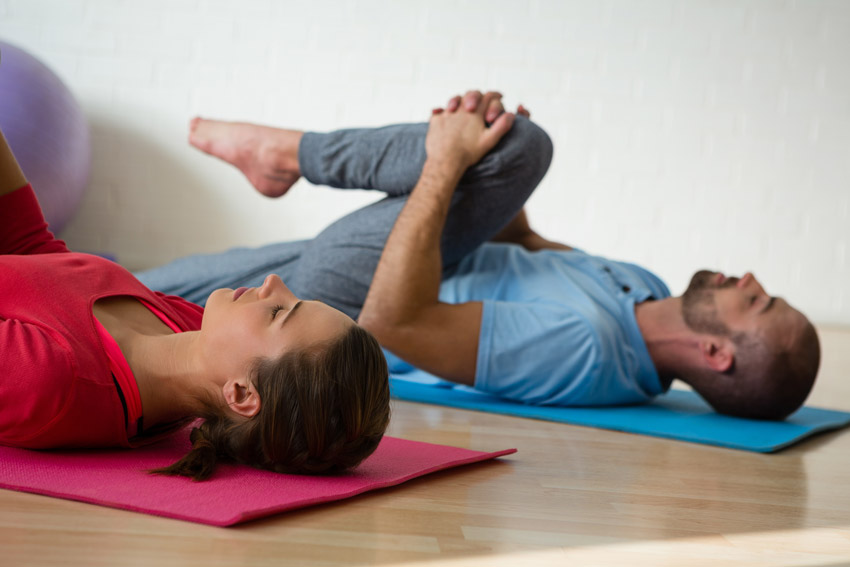You might be surprised to discover that Bel Aire Recovery Center offers yoga for folks who are going through substance use disorder treatment at our facility. It might seem as though we are just trying to grab onto a trend as a way to entice you into choosing our center over other options for treatment. After all, twisting and bending and posing probably doesn’t have much to do with the actual process of regaining and maintaining sobriety, right?
Actually, it does.
A yoga practice can lead to an array of physical and mental health benefits—benefits that can be useful to a person in recovery. Let’s take a look at those benefits.
How Does All That Bending Lead to Benefits?
It is easy to think of yoga as merely a physical activity that tones our muscles and increases our flexibility. But it turns out that yoga can also have great benefits for our brains. Not the least of these benefits is yoga’s support for the brain’s neuroplasticity.
Neuroplasticity is a fancy word for an amazing feature of our brains. When we repeat a behavior many, many times, neural pathways are created in our brains. Those pathways end up reinforcing the habits that led to their creation. If you are using drugs or alcohol, these neural pathways are likely leading you down the path, so to speak, toward a substance use disorder.
The good news, however, is that neuroplasticity means that new, alternate pathways can be built by changing your behavior. Going through detox and rehab sets the stage for creating those new pathways—and yoga has been shown to support that all-important neuroplasticity.
But supporting neuroplasticity is far from the only benefit yoga might provide to a person in recovery. Other benefits include a reduction in withdrawal symptoms and/or the frequency and intensity of cravings for alcohol or drugs; an ongoing strategy for managing stress, anxiety, and triggers that may arise; and a steady activity that can reduce feelings of boredom and loneliness (especially if you attend yoga classes in person).
Posing in the Present
By now, you might be ready to acknowledge that yoga seems to have some benefits for folks in recovery. But you still might be wondering what all the posing is about. Why would you want to put your body in these unusual positions?
The central idea is that the adopting physical postures of yoga can strengthen the connection between your breath, your body, and your mind. As you move from one pose to another or as you hold a particular pose, you also focus on your experience of the present moment. In the yoga poses, you can stay present rather than worrying about the past or the future.
You could think of yoga as a more physical cousin to mindfulness meditation. Both practices encourage you to let go of rumination about the past and anxiety about the future. Staying the present moment is an excellent approach to maintaining your sobriety because the mistakes of the past and the uncertainties of the future do not weigh so heavily on your mind—and thus are less likely to tempt you into a relapse.
High Level of Benefit, Low Barriers to Entry
One of the nice things about yoga is that it can be practiced in a variety of settings with an extremely limited amount of equipment. Generally speaking, if you have a yoga mat and you are dressed in clothing that allows you to comfortably move through the poses, you are all set.
Whether you take classes in person or turn to video or online guides, odds are you will have no trouble finding resources to get you started. And as we have noted, you might just get your start as part of your treatment at Bel Aire Recovery Center.
Let Us Pose a Question: Are You Ready to Get Sober?
At Bel Aire Recovery Center, our focus is on helping you get sober and providing you with the resources and support you need to maintain that sobriety. We offer personalized, compassionate care—and we are committed to a continuum of care to ensure that you feel supported and confident in the early days of your recovery. And did we mention we offer yoga onsite?




